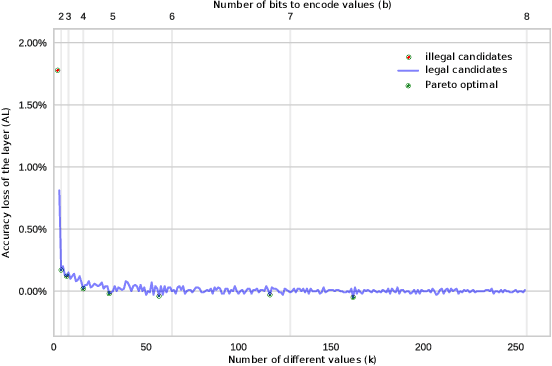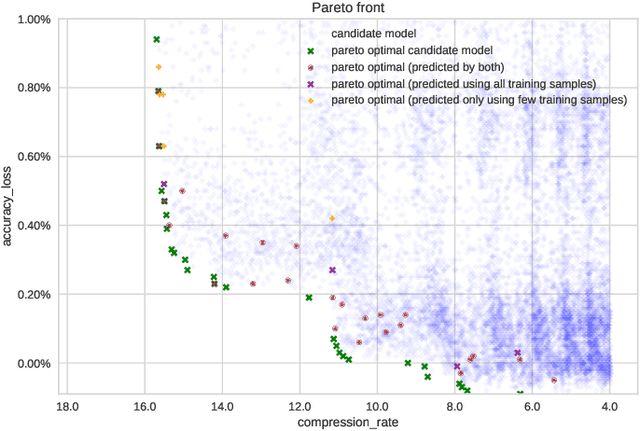Etienne Dupuis
INL - CSH
Approximations in Deep Learning
Dec 08, 2022Abstract:The design and implementation of Deep Learning (DL) models is currently receiving a lot of attention from both industrials and academics. However, the computational workload associated with DL is often out of reach for low-power embedded devices and is still costly when run on datacenters. By relaxing the need for fully precise operations, Approximate Computing (AxC) substantially improves performance and energy efficiency. DL is extremely relevant in this context, since playing with the accuracy needed to do adequate computations will significantly enhance performance, while keeping the quality of results in a user-constrained range. This chapter will explore how AxC can improve the performance and energy efficiency of hardware accelerators in DL applications during inference and training.
Fast Exploration of Weight Sharing Opportunities for CNN Compression
Feb 02, 2021

Abstract:The computational workload involved in Convolutional Neural Networks (CNNs) is typically out of reach for low-power embedded devices. There are a large number of approximation techniques to address this problem. These methods have hyper-parameters that need to be optimized for each CNNs using design space exploration (DSE). The goal of this work is to demonstrate that the DSE phase time can easily explode for state of the art CNN. We thus propose the use of an optimized exploration process to drastically reduce the exploration time without sacrificing the quality of the output.
 Add to Chrome
Add to Chrome Add to Firefox
Add to Firefox Add to Edge
Add to Edge